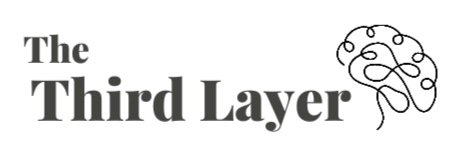Poetry vs neuroscience: a creativity smackdown
I saw a Twitter exchange this morning between Thomas Basbøll, a writing consultant at a university in Denmark, and the neuroscientist Lisa Feldman Barrett:
@inframethod: I’m always puzzled by these sorts of headlines [Barrett’s Where Do Emotions Come From?]. It’s as if we don’t have thousands of years of poetry to consult if we want to know how emotions work. Who cares what the brain does?
@lfeldmanbarrett: Interesting question. Poetry is deep and wonderful, but incorrect scientific ideas about emotion cost time, money, & lives. For example, women over age 65 die more frequently than men from heart attacks, in part because medical professionals "read" women's symptoms as anxiety.
@inframethod: Good point. And I suppose even poets have to admit that bad poetry (in its many popular guises) is to blame for not a few (sometimes fatal) misunderstandings.
What we gain and what we lose
Whenever we encounter scientific information that challenges our interpretation of God (a heliocentric solar system, evolution, etc), we both gain and lose. We gain the next step in the ladder of knowledge, and scientists are fantastic at talking that part up.
But we also lose. We lose our view of how the world operates and is supposed to operate. As Basbøll points out, we lose a little bit of that … hmm, magical, undefinable ‘poetry’ that has given life its richness for thousands of years.
Which is why I think we hate to quantify that richness. Watch a thousand movies — Star Wars, Harry Potter, any sci-fi film with evil governments creating ‘factions’ — and you’ll see how much we personify ‘order’ as the villain. The US still hasn’t switched to the metric system, for God’s sake (pun intended). We desperately want there to be mystery, randomness, chaos, magic, beauty, entropy.
Science, poetry, and God
Just as video killed the radio star, science threatens to kill both the poet and the theologian.
I was a Religious Studies major before I was a journalist. I just started writing this research-on-creativity blog a month ago, but I also just published my first poem, did stand-up comedy, and think tarot cards are great fun. I get it. I believe in science, but I also deeply, deeply believe in whatever part of my brain that would rather have the poetry, thanks. I’m learning the science as I go, but I can tell you that poetry part feels primordial, ancient, natural.
In fact, I play with this juxtaposition when I teach creativity, writing or poetry. In fact, with my students, creativity comes from the interplay between these two, ahem, factions (sorry; had to do it). Creativity feels like a constant dance between the two, a game of mind-wandering, brainstorming Pong where insights happen in the in-between moments when science bounces off of poetry, or vice versa. Even the kind of creativity that leads to scientific breakthroughs.
Thankfully, the metric system didn’t ruin cake.
Creativity is all about making connections that don’t exist yet. It’s about not employing the scientific method. It’s why I think so many important scientific breakthroughs happen through accidents (penicillin, velcro, microwaves, Viagra) or why Einstein played the violin in order to think. Combinatory play, he called it.
Chaos to order and order to chaos
What many people get wrong about creativity is that to do it well, it requires a lack of order. The myth of the tortured artist or scattered professor.
A — dare I say it? — creative analogy: After having a Finnish partner, I have come to love the metric system. It’s taken me a while to learn to cook and bake with it, but an ordered system doesn’t make my carrot cakes taste any worse.
Science doesn’t have to kill emotions or poetry, but at the same time, scientists need to acknowledge that it will make us lose something. Love might be a red, red rose, but it might also be oxytocin, dopamine, or testosterone. Brain science will change the world over the next 100 years as much as the discovery of vitamins have changed nutrition, so we’ll all be getting used to this, but it does take away some of the magic. But as Feldman Barrett pointed out, women die when our hearts are described as anxious rather than undergoing a myocardial infarction. It’s ultimately a good thing. We’ll just have to find different ways to bake — and describe — our emotional cakes.
Poetry first, science second
The beauty of the poetic or creative mindset is in its very non-scientificness. It’s wandering, free, open, unsystematic. It’s making connections that make no sense at first. Poetry is a groovy Beatnik, playing their new bongo drums to find a rhythm that’s, like, cool. Creativity is a messy desk, a Basquiat painting, a mind map that veers in unexpected ways. Creativity is the opposite of methodology, formulation, testing. It’s real, it’s authentic, it’s free.
But creativity needs science and order, too. That Beatnik? They dropped out of bongo college, got addicted to heroin, and lived on the streets. Who’s been in a hippie organization that refuses to enact any rules, and eventually falls apart or succumbs to infighting?
New information isn’t automatically cold and calculated. Order doesn’t mean the Galactic Empire, Dolores Umbridge, or government factions. But we also need to honor that science and the fight against entropy is a transition that’s harder for our poet-brains to accept than we realize.


